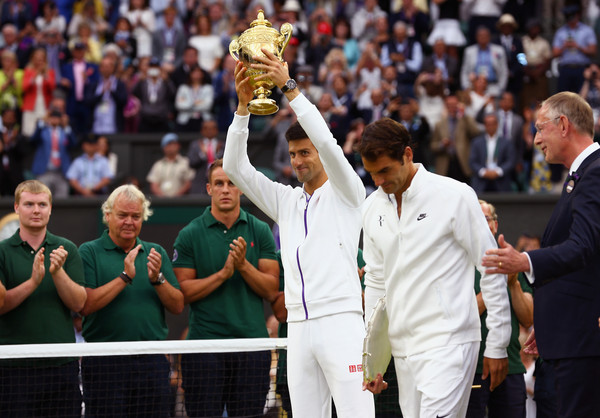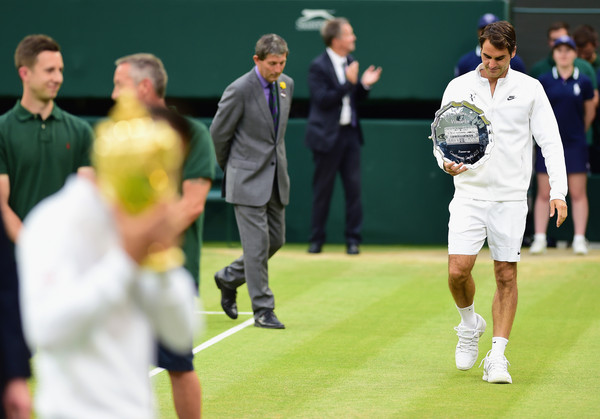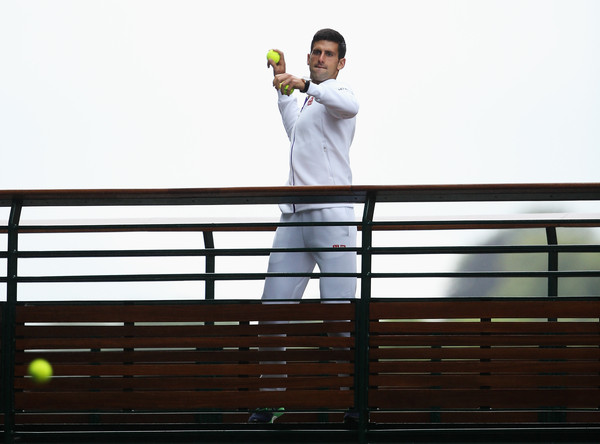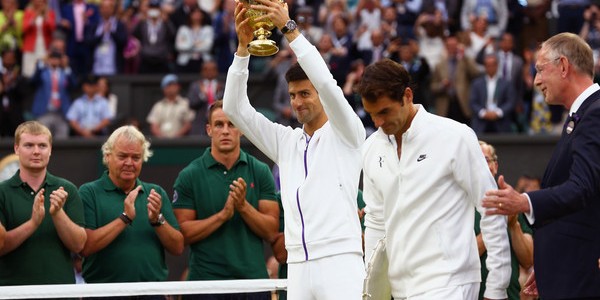While Novak Djokovic extended his domination at Wimbledon and over Men’s Tennis with another Grand Slam title, Roger Federer, over the course of the tournament and less so in the final, showed he isn’t going anywhere, not retiring any time soon and remains, on most days, the second best player in the world, which is quite astonishing as he approaches his 34th birthday.
The interesting thing about Federer is that he’s been through the big crisis of his career, and came out stronger. No, I don’t think he is as good as he was during that incredible 2004 to 2007 period when he won 11 Grand Slam titles, although his performance in the semifinal against Andy Murray was probably one of the best of his entire career, and not just the 30+ aspect of it.

Djokovic did lose to Stanislas Wawrinka in the Roland Garros final but when it comes to consistency, fitness in best of five matches and ability to raise his game with his back to the wall, he constantly shows he’s in a different class than anyone else on the ATP Tour at the moment and maybe better in that aspect than anyone in history.
Federer couldn’t do to Djokovic what he did against Murray for a few simple reasons that have been evident in almost every Federer loss to Djokovic in matches over the last three years, or pretty much ever since Federer shocked Djokovic in the 2012 Wimbledon semifinal, proceeding to win his 17th and for now, his last Grand Slam title.

It begins with age and fitness. Federer is no longer struggling with back injuries, but as he gets closer to celebrating his 34th birthday, it’s more difficult for him to keep up with the intensity of Djokovic, which was hard to ignore in the third and fourth sets of the final on Sunday. The serves don’t hit with the same accuracy (they were quite off all match long), and forehand’s placement is all over the place. Djokovic gets stronger and more aggressive as the match goes on. Federer needs to finish these quickly, or he’ll lose, and not just against Djokovic.
He served perfectly against Murray. But doing that is more difficult against Djokovic. The accuracy needs to be better. Either to the T-point, exactly there, or wide, on the line. Going for those places means taking a risk, which resulted in low percentage on first serves for Federer. Djokovic hungrily pounced on the second serves with growing venom in his returns.

Federer can’t beat Djokovic from the baseline. It’s an approach he failed with against Nadal as well. Federer isn’t a serve and volley player, although working with Stefan Edberg has slightly changed that. He needs to do it more, especially against Djokovic. It might mean taking more risks, but Djokovic won’t make more mistakes than him in long rallies. He’s simply too good right now. Better.
This is Djokovic’s day, time. A ninth Grand Slam title, eighth in the last five seasons. But this is still Federer’s time as well, playing better than all the youngsters on the tour, and perhaps even outlasting the much younger Rafael Nadal, who looks much closer to retiring than Federer is. Who knows, maybe he’ll outlast Djokovic as well, although right now there isn’t any sign of the world’s number one slowing down.
